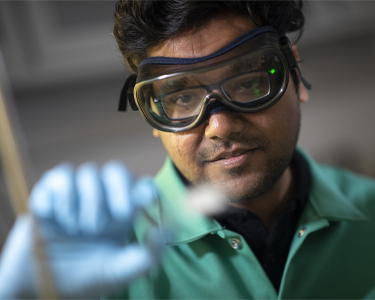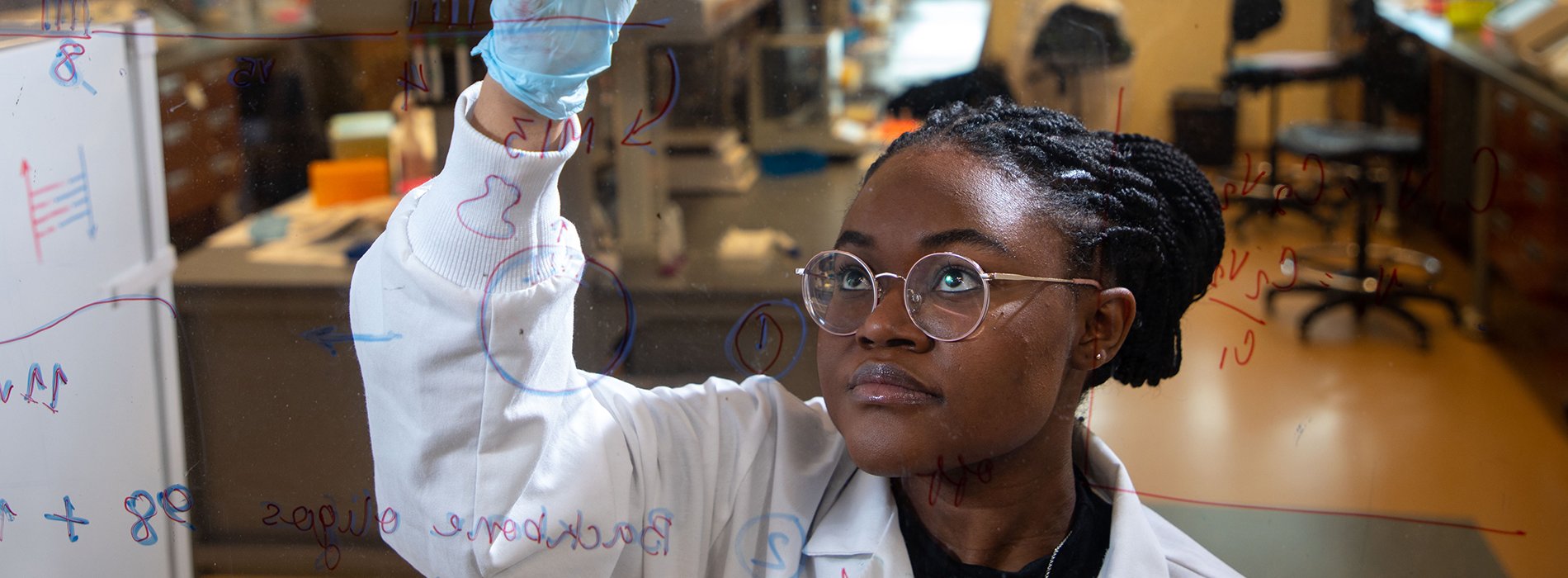The University at Albany is pioneering new, more inclusive approaches to teaching STEM, supported by a $2.5 million Driving Change grant from the Howard Hughes Medical Institute (HHMI).
HHMI’s Driving Change initiative seeks to effect lasting culture changes at research universities to ensure undergraduate students from all backgrounds, particularly those who belong to historically excluded groups, will excel in STEM and graduate from college well-prepared to pursue advanced degrees and assume leadership roles in STEM fields.

Through this five-year HHMI grant, UAlbany has established EXCELlence in STEM, a program that enhances student support to increase retention, persistence and graduation rates. It leverages the University's existing STEM support network—a network shown to benefit STEM majors who participate, with a greater proportion of positive impacts on STEM majors from historically underrepresented backgrounds. EXCELlence in STEM utilizes a three-pronged approach that incorporates student-centered interventions, faculty redesign of STEM instruction, and institutional support.
Key Initiatives
EXCELlence in STEM utilizes a three-pronged approach that incorporates student-centered interventions, faculty redesign of STEM instruction, and institutional support.
Student-Centered Initiatives
Student-Centered Initiatives enable all students to succeed while reaffirming a university commitment to and value of that success.
- STEM Start communications to welcome incoming STEM students.
- Supplemental Instruction for introductory STEM courses.
- Personalized advising and academic counseling for STEM students.
- Student Success Teams that include an advisor, academic coach, resident director, supplemental instruction leaders, financial aid counselor, and an optional pre-health advisor.
- Microgrants to provide additional financial support for students across the University, including those pursuing STEM degrees.
- Engagement opportunities to financially support students by providing them employment as Supplemental Instruction Leaders, peer tutors, and undergraduate staff.
Faculty-Centered Initiatives
Faculty-Centered Elements advance STEM pedagogy and support faculty in developing inclusive teaching practices and course design.
- Equity and Excellence in Education (E3) Provost Fellowship, a professional community of practice award for UAlbany STEM instructors, is designed to enhance instructional practices and improve teaching and learning experiences for instructors and students.
- Culturally responsive STEM content to introduce and clarify challenging course concepts in a relatable fashion. Developed in collaboration with the School of Education, the New York State Master Teacher Program.
Institution-Centered Initiatives
Institution-Centered Initiatives will significantly increase the inclusivity of the university’s STEM learning environment and provide project longevity.
- Resources for program sustainability
- Creation of the Learning Commons, a dedicated university space and unit within AISS to support grant activities, particularly student-centered initiatives.
- Permanent personnel to support the Learning Commons and grant activities.
- Pedagogical enhancements of STEM areas through recruiting and training STEM graduate students as Learning Commons Graduate Fellows.
- Creation of scholarly research based on assessment of program outcomes and variable impacts.



